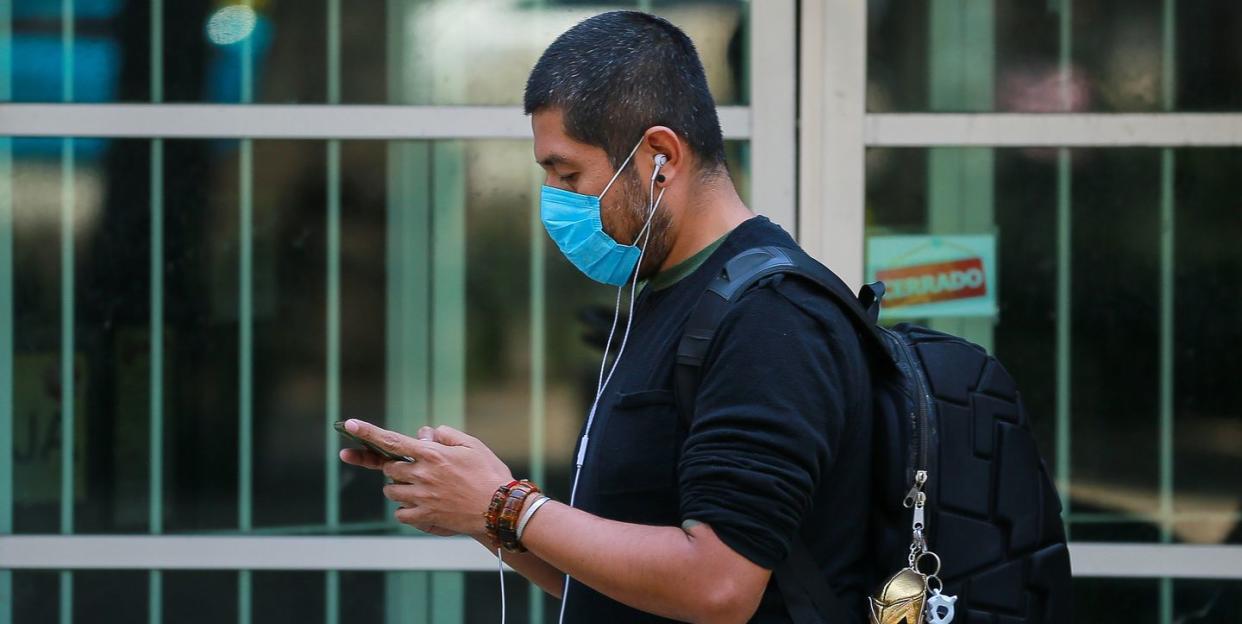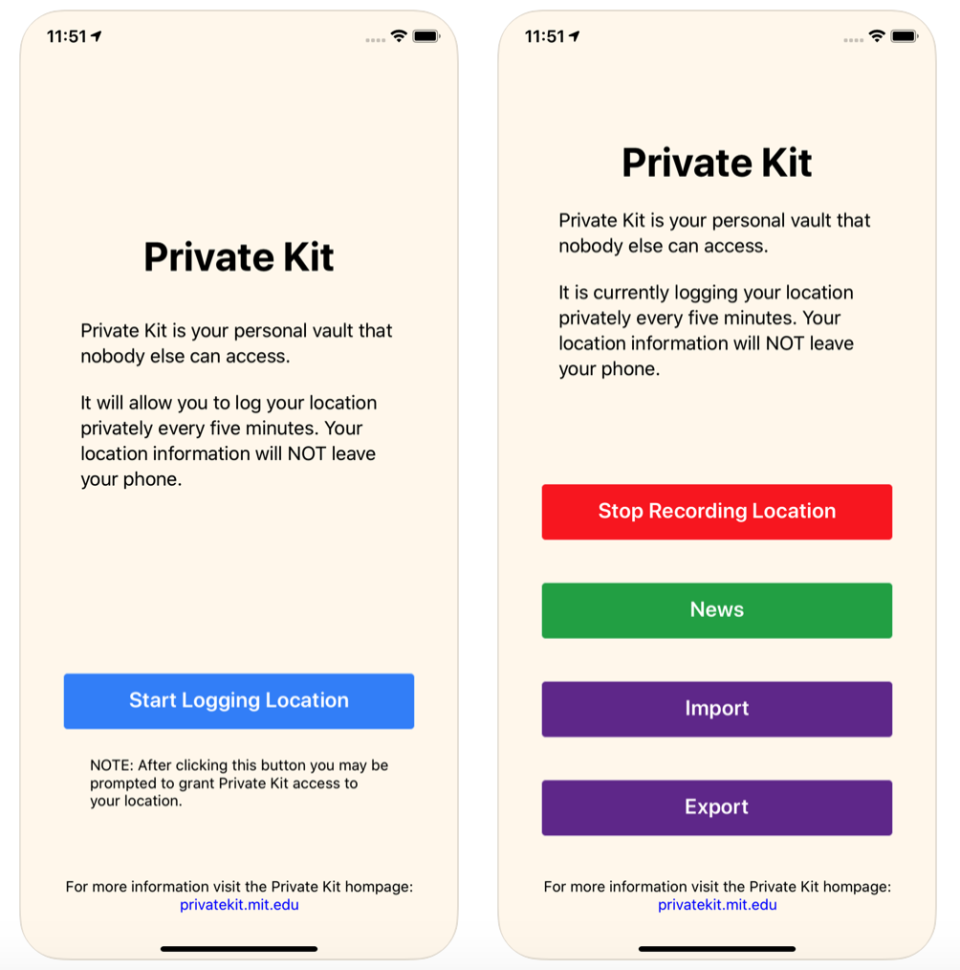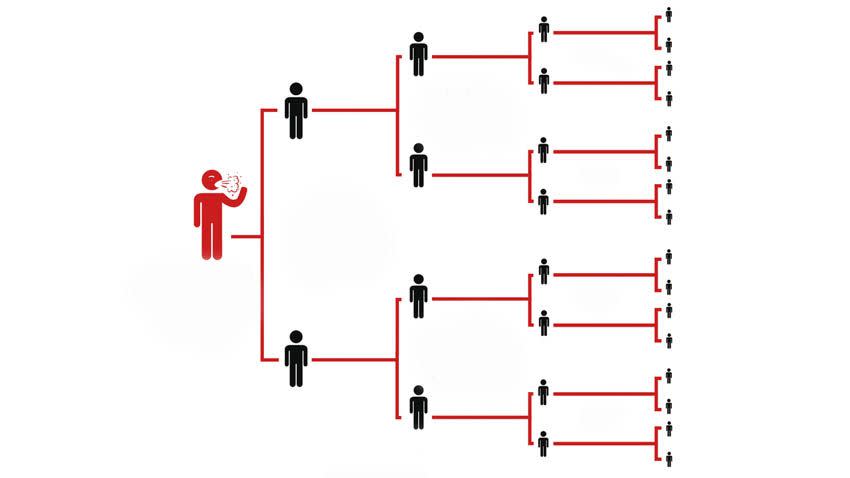This MIT App Tracks the Spread of Coronavirus While Protecting Your Privacy

To stymie the spread of COVID-19 (coronavirus), researchers at the Massachusetts Institute of Technology have developed an app to help people steer clear of anyone who has tested positive.
Called "Private Kit: Safe Paths," the app uses your location data to determine who you've crossed paths with, as the name suggests. The data is encrypted to help maintain a semblance of privacy.
People who have tested positive for COVID-19 may choose to share their data, collected through the app, with health officials.
In the fight to quell the spread of COVID-19, the disease caused by the coronavirus, containment is currently the best weapon the globe has in its arsenal. Once an infected individual is identified, they're quickly placed in self-quarantine, as experts trace their prior whereabouts to disinfect those areas and to test anyone else that the person has come into close contact with.

That's a labor-intensive process, prone to errors in memory, not to mention the potential privacy concerns, according to a group of researchers from the Massachusetts Institute of Technology (MIT). In a new white paper published this week, the scientists describe a new app that they've developed, called "Private Kit: Safe Paths," which lets you know if you've likely come into contact with a person who has tested positive for COVID-19.
The app—which is still a prototype, but is available for download on both iOS and the Google Play market—seeks to streamline the contact-tracing process. Traditionally, the process has three components, according to the World Health Organization. First, professionals identify anyone that an infected patient has come into contact with. Then, they record the possible contacts and finally follow up with them.
In the paper, the researchers note that lessons from China have shown the value of using GPS localization to identify any intersection between healthy people and patients who ended up contracting COVID-19. Of course, China has an authoritarian government and location data was pulled from individuals' phones and processed by the government—something that simply would not fly in the U.S.
Still, the researchers figure that a consumer app that users can voluntarily download may be a happy medium. Particularly, the MIT scientists believe that the application could lower the R0 (pronounced R-naught), the reproduction number of an infectious disease, which shows how contagious it is. R0 is a measure of the average number of people who will catch a disease from a contagious person. Epidemiologists say that the lower this number becomes, the more likely a disease will die out.

Private Kit: Safe Paths collects users' location data, keeping a time-stamped log every five minutes. In total, 28 days of data can be stored in the app in under 100 kilobytes of space (that's less storage space than a single photo takes up). Your data never leaves your phone and is encrypted so that users cannot identify you. If you end up later testing positive for COVID-19, you can send your location data to public health researchers by using a QR code, thereby facilitating contact-tracing.
Even if a user doesn't choose to report their disease status, the researchers do hope that if a person finds out they may have had potential exposure to COVID-19, they will immediately self-quarantine, thereby contributing to a lower R0.
For instance, the researchers note, if you assume app uptake of x percent among a given population, assuming that portion of the population responds to known exposure by self-quarantining, the R0 will decrease by a multiple of that percentage, based on the degree of mixing within the population.
"Furthermore, with an increasing number 'x' in terms of user base, there will be an exponential decrease in R0," the researchers say. In other words, the research team hopes there will be a mass rate of adoption—pretty much the only way this app will be able to make a surmountable difference.
⚠️Although it is useful to know where hot pockets of the virus likely lie, social distancing should still be practiced at all times, even if it appears that you're in a COVID-19-free zone.
You Might Also Like

